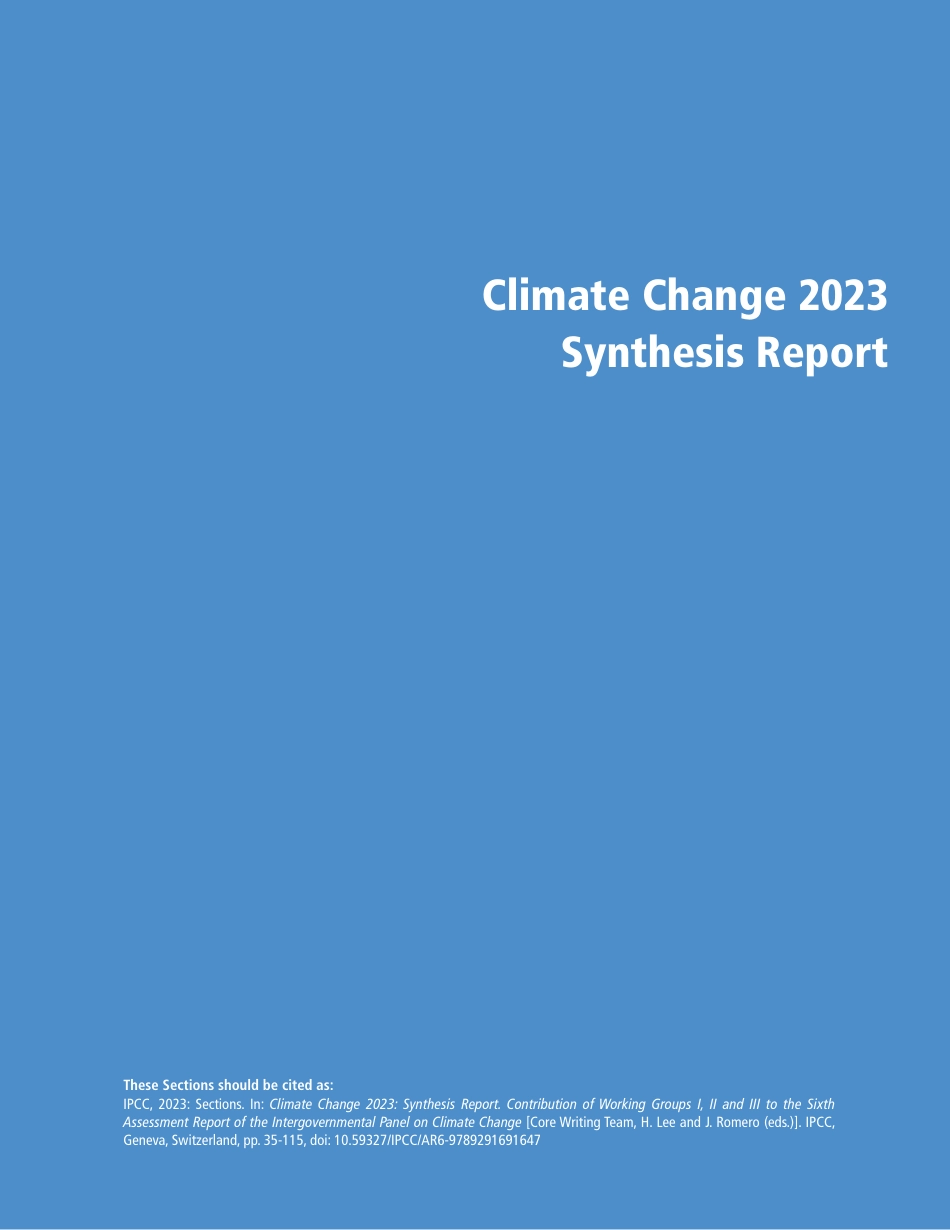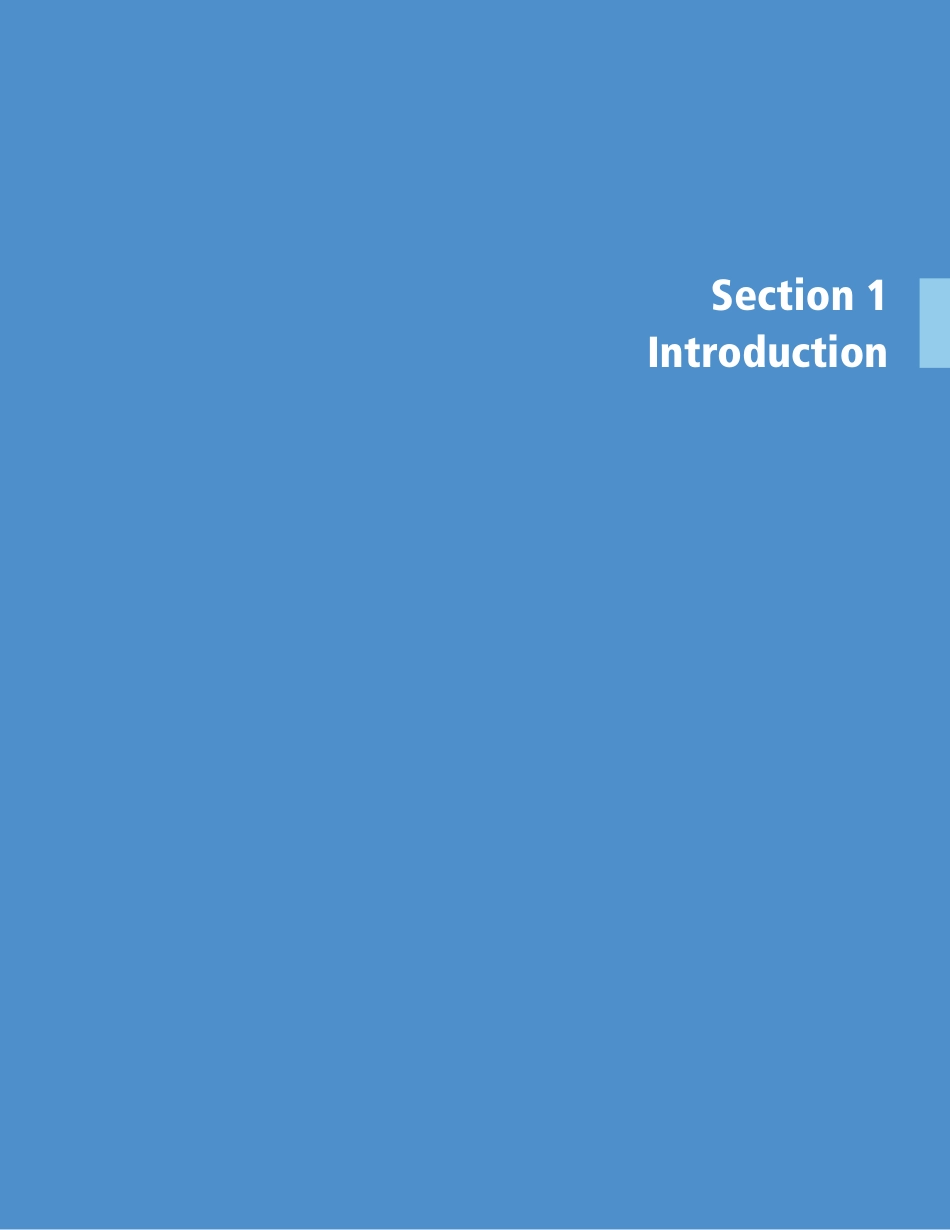35ClimateChange2023SynthesisReportIPCC,2023:Sections.In:ClimateChange2023:SynthesisReport.ContributionofWorkingGroupsI,IIandIIItotheSixthAssessmentReportoftheIntergovernmentalPanelonClimateChange[CoreWritingTeam,H.LeeandJ.Romero(eds.)].IPCC,Geneva,Switzerland,pp.35-115,doi:10.59327/IPCC/AR6-9789291691647TheseSectionsshouldbecitedas:37Section1Introduction38Section1Section1ThisSynthesisReport(SYR)oftheIPCCSixthAssessmentReport(AR6)summarisesthestateofknowledgeofclimatechange,itswidespreadimpactsandrisks,andclimatechangemitigationandadaptation,basedonthepeer-reviewedscientific,technicalandsocio-economicliteraturesincethepublicationoftheIPCC’sFifthAssessmentReport(AR5)in2014.Theassessmentisundertakenwithinthecontextoftheevolvinginternationallandscape,inparticular,developmentsintheUNFrameworkConventiononClimateChange(UNFCCC)process,includingtheoutcomesoftheKyotoProtocolandtheadoptionoftheParisAgreement.Itreflectstheincreasingdiversityofthoseinvolvedinclimateaction.ThisreportintegratesthemainfindingsoftheAR6WorkingGroupreports58andthethreeAR6SpecialReports59.Itrecognizestheinterdependenceofclimate,ecosystemsandbiodiversity,andhumansocieties;thevalueofdiverseformsofknowledge;andthecloselinkagesbetweenclimatechangeadaptation,mitigation,ecosystemhealth,humanwell-beingandsustainabledevelopment.Buildingonmultipleanalyticalframeworks,includingthosefromthephysicalandsocialsciences,thisreportidentifiesopportunitiesfortransformativeactionwhichareeffective,feasible,justandequitableusingconceptsofsystemstransitionsandresilientdevelopmentpathways60.Differentregionalclassificationschemes61areusedforphysical,socialandeconomicaspects,reflectingtheunderlyingliterature.Afterthisintroduction,Section2,‘CurrentStatusandTrends’,openswiththeassessmentofobservationalevidenceforourchangingclimate,historicalandcurrentdriversofhuman-inducedclimatechange,anditsimpacts.Itassessesthecurrentimplementationofadaptationandmitigationresponseoptions.Section3,‘Long-TermClimateandDevelopmentFutures’,providesalong-termassessmentofclimatechangeto2100andbeyondinabroadrangeofsocio-economic58ThethreeWorkingGroupcontributionstoAR6are:ClimateChange2021:ThePhysicalScienceBasis;ClimateChange2022:Impacts,AdaptationandVulnerability;andClimateChange2022:MitigationofClimateChange,respectively.Theirassessmentscoverscientificliteratureacceptedforpublicationrespectivelyby31January2021,1September2021and11October2021.59ThethreeSpecialReportsare:GlobalWarmingof1.5°C(2018):anIPCCSpecialReportontheimpactsofglobalwarmingof1.5°Cabovepre-industriallevelsandrelatedglobalgreenhousegasemissionpathways,inthecontextofstrengtheningtheglobalresponsetothethreatofclimatechange,sustainabledevelopment,andeffortstoeradicatepoverty(SR1.5);ClimateChangeandLand(2019):anIPCCSpecialReportonclimatechange,desertification,landdegradation,sustainablelandmanagement,foodsecurity,andgreenhousegasfluxesinterrestrialecosystems(SRCCL);andTheOceanandCryosphereinaChangingClimate(2019)(SROCC).TheSpecialReportscoverscientificliteratureacceptedforpublicationrespectivelyby15May2018,7April2019and15May2019.60TheGlossary(AnnexI)includesdefinitionsofthese,andothertermsandconceptsusedinthisreportdrawnfromtheAR6jointWorkingGroupGlossary.61Dependingontheclimateinformationcontext,geographicalregionsinAR6mayrefertolargerareas,suchassub-continentsandoceanicregions,ortoty...



 VIP
VIP VIP
VIP VIP
VIP VIP
VIP VIP
VIP VIP
VIP VIP
VIP VIP
VIP VIP
VIP VIP
VIP